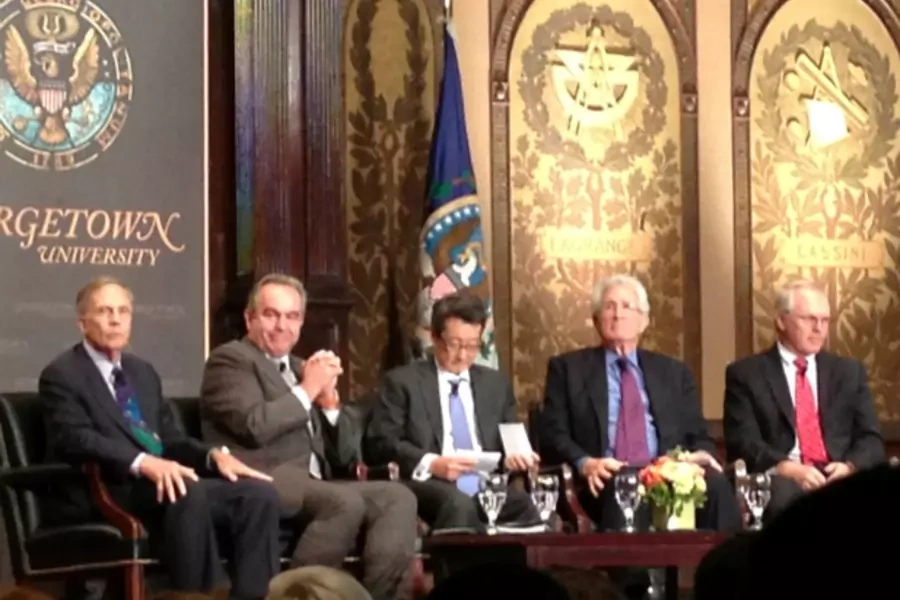More on:
Georgetown University hosted four current and former assistant secretaries of state for East Asia and Pacific Affairs—Richard H. Solomon (1989-1992), Winston Lord (1993-1996), Christopher Hill (2005-2009), and Kurt Campbell (2009-present)—on November 1 for a wide-ranging discussion of their views, experiences, and challenges as the senior officials responsible for managing U.S. policy toward Asia during their respective administrations. The discussion provided a tour d’horizon of the recent history of U.S. engagement with Asia, in addition to showcasing the impressive diplomatic, analytical, and communications skills that each man brought to the job. I drew the following takeaways from the conversation:
- The need for a stable U.S.-China relationship has long been a central U.S. policy priority in Asia, but the rationale and purposes underlying the pursuit of a good U.S.-China relationship have shifted as China’s regional and global roles have changed. China’s size and strategic weight have always required active U.S. diplomatic engagement with China, initially to serve as a strategic counterweight to the Soviet Union in the 1970s and now to address issues around the world and provide stability in Asia.
- China now looms a virtual presence in every U.S. bilateral relationship in Asia, but China’s unwillingness to participate in official trilateral dialogue serves as a constraint on the capacity of the United States and China to effectively manage specific issues that could challenge regional stability in Asia. For instance, a U.S.-China dialogues with South Korea may be critical to managing North Korean instability, and such a dialogue with Japan might enable more effective management of Asian maritime disputes, including in the East China Sea.
- A major challenge facing policymakers is that China’s social and economic development has outgrown its current political system. As a result, the external effects of China’s internal focus on stability are creating new challenges for U.S. and Asian policymakers. Internal economic or political instability in China will have direct effects on every other country in the region.
- North Korea, while being the most vulnerable to such shocks from Chinese internal adjustments, is itself the region’s most anticipated gamechanger. It could follow the path of Myanmar and pursue economic reforms while seeking renewed U.S. engagement, be consumed by internal conflicts and an accompanying breakdown in political stability, or both.
- There was a consensus among the panel in favor of U.S. rebalancing strategy toward Asia as well as the idea that good China policy involves extensive and multi-faceted U.S. engagement across the region. The consensus included strong support for the Obama administration’s efforts, led by Secretary Clinton and Assistant Secretary Campbell, to place Asia higher among U.S. foreign policy priorities. It is a region where the United States has historically gotten good political returns on investment. The panel expressed optimism that the United States will successfully address its own economic and fiscal problems as an essential step toward sustaining its position in Asia. But despite this optimism, there are still doubts about the political and financial sustainability of the rebalancing policy. In this respect, the next U.S. Assistant Secretary for East Asia and the Pacific has big shoes to fill and some daunting challenges ahead.
More on:
 Online Store
Online Store

